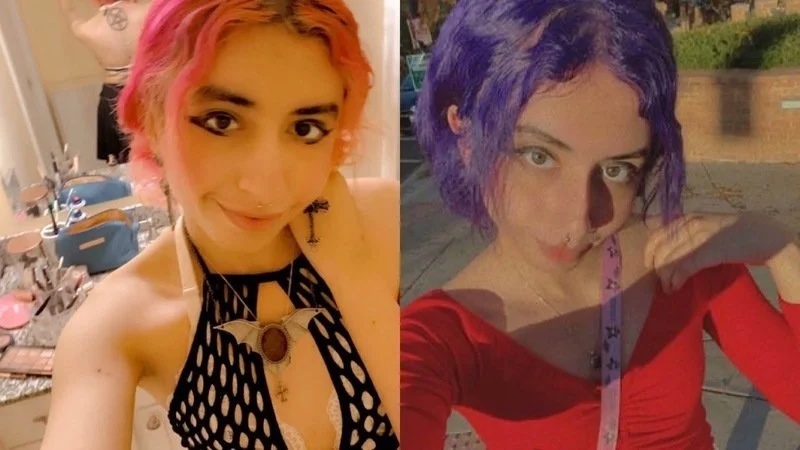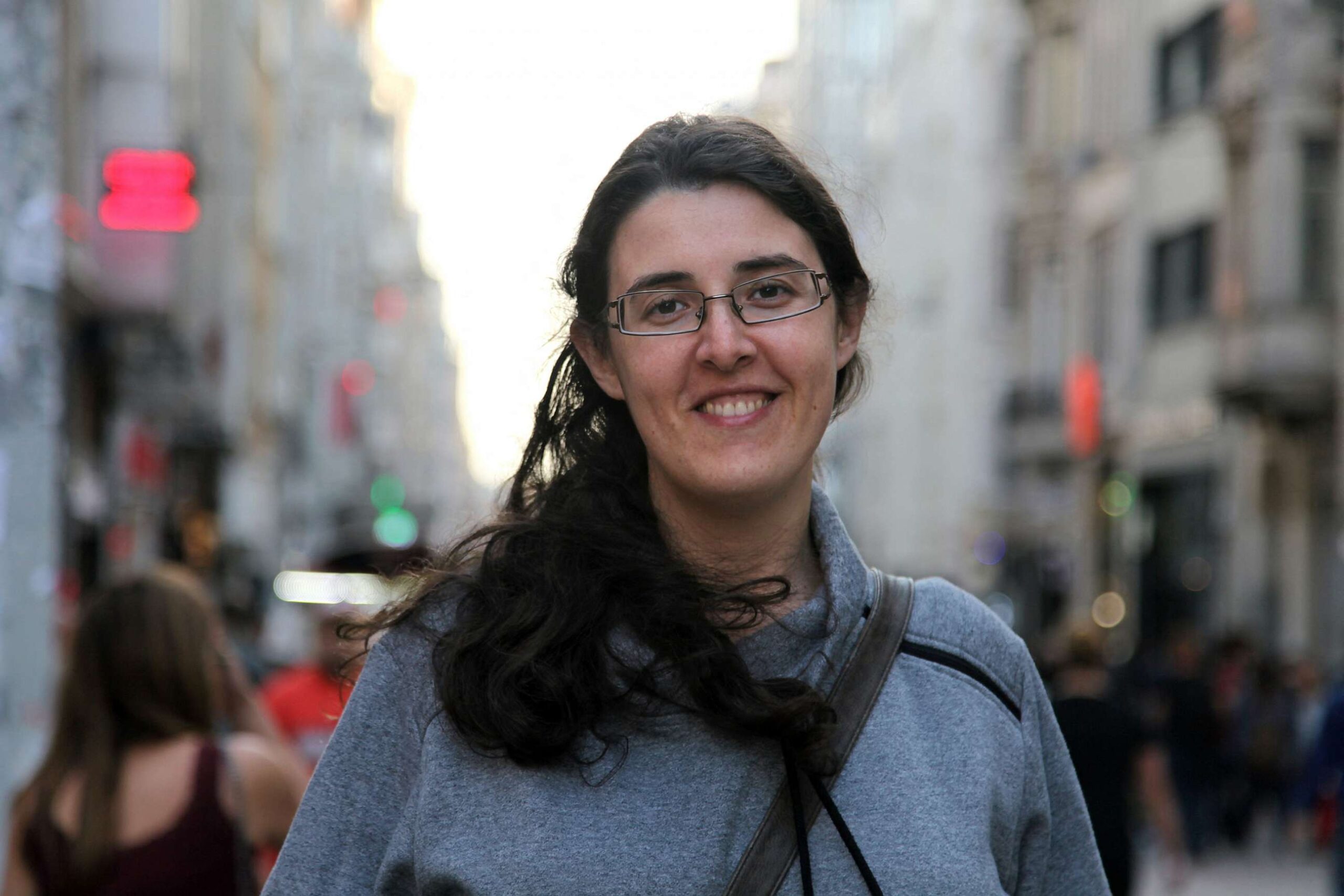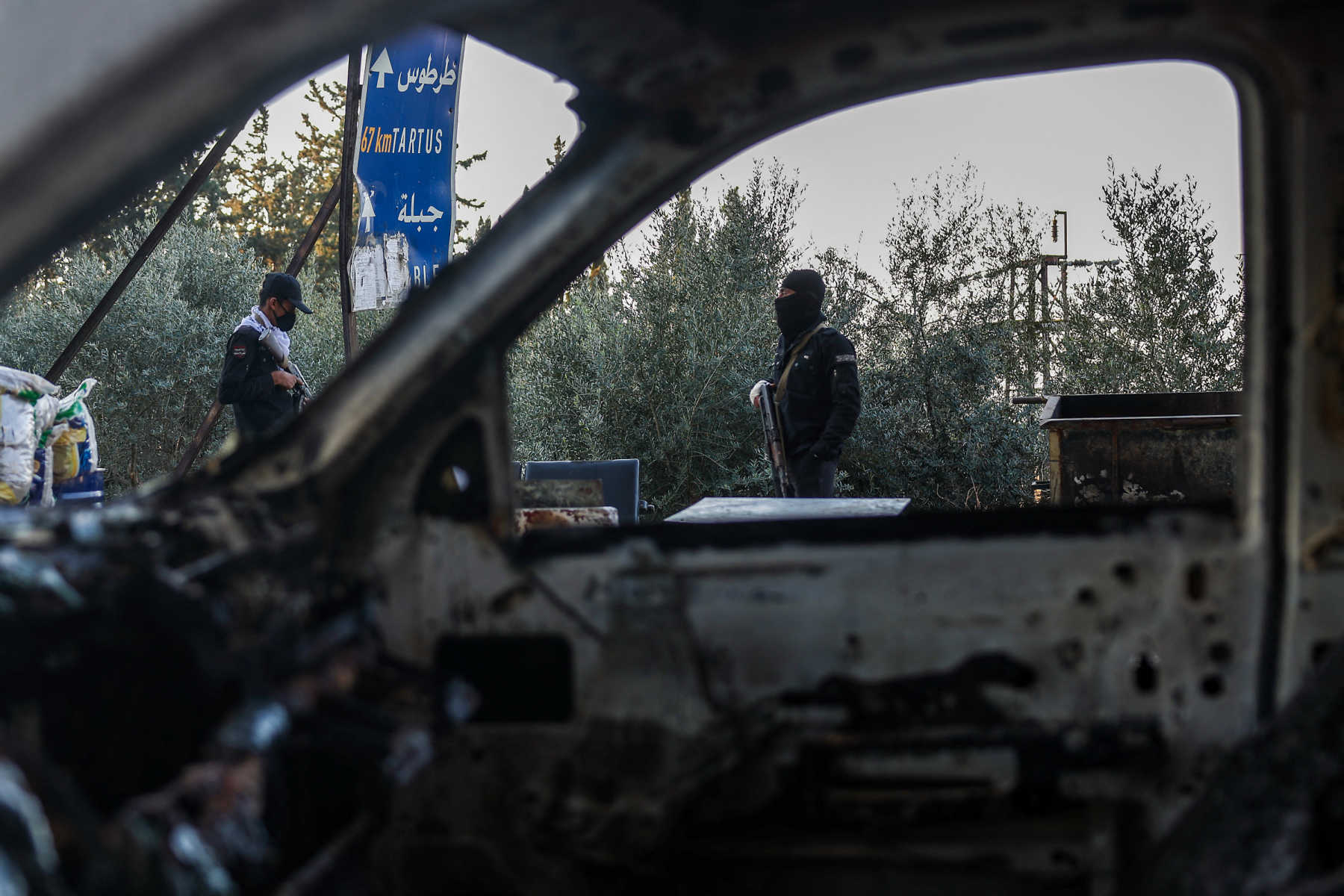Nora Noralla, an Egyptian human rights researcher and consultant, is a research fellow at the Information Society Law Center at the University of Milan. She has worked in different capacities with the Cairo 52 Legal Research Institute, Human Rights Watch, Article 19, and the Berkman Klein Center for Internet & Society at Harvard University.
When a young Saudi transgender woman named Eden Knight took her own life in March, it came after what can best be described as a siege of mental abuse by her own family. Eden, who was 23 years old, started transitioning in 2022 as a student in the United States. But she was reportedly coerced into returning to Saudi Arabia by private investigators in the U.S. hired by her family, according to the suicide note she posted on social media, along with numerous reports on her case. Back in Saudi Arabia, Eden said she faced conversion therapy and forced detransition.
"I hope that the world gets better for us," Eden wrote in her note. "I hope our people get old. I hope we get to see our kids grow up to fight for us. I hope for trans rights worldwide."
The news of her death sparked an outcry among defenders of LGBTQ rights internationally; U.S. Congresswoman Cori Bush was among those who drew attention to it. A spokesman from the U.S. State Department told Vice News, regarding the role of an American firm that was apparently hired by Eden Knight's family to bring her back to Saudi Arabia, "We have seen these reports and are studying these allegations."
But in Saudi Arabia, two main narratives quickly emerged about her death, as evidenced on Saudi social media, particularly Twitter and TikTok—two of the kingdom's most popular social media apps, each with more than 20 million users. These narratives reflect how Saudi society largely sees the issue of being transgender and how it justifies the discrimination and abuse of trans people.
The story of Eden Knight not only reflects the abuse that transgender people face in Saudi society, but how they are not safe from that abuse even when they are in another country.
- Nora Noralla
The first narrative claimed to be "the true story" of Eden Knight, according to her family. Several videos on a TikTok account called "ygolk" insisted that her American host family in the U.S. had "corrupted" Eden, manipulating her into starting hormone replacement therapy, before she was rescued by her family. Upon her return to Saudi Arabia, one of these videos claimed, her father provided "the best medical care available" to treat her, until she eventually repented and performed Umrah, an Islamic pilgrimage to Mecca, to ask for forgiveness—but then, she tragically died in a car accident. This particular video was shared widely on Saudi social media, with thousands of views and likes, along with comments praising the father for his supposed care and praying to ask Allah for forgiveness for Eden.
The second narrative prevalent on Saudi social media was more sinister, acknowledging that her family killed her but essentially celebrating her death. Supporters of this version of events on social media claimed that the father had protected the family's honor by ending Eden's life and depicted him as a symbol of Islamic and Arab machismo fighting against the West's depraved transgender ideology.

In Saudi Arabia, where Sharia is the law of the land, being transgender is condemned mainly as a Western imposition that would corrupt Muslim youth. The Saudi government and Islamic jurists in the kingdom view transgender identity as a mental disorder that should be treated but not necessarily punished unless the person insists on being "deviant"—that is, dressing and acting in ways not corresponding with their assigned birth sex. Since being transgender is closely related to family honor in Saudi Arabia, families fear the public disgrace of having a transgender child and try to keep any issues private, away from the government. Thus, incidents of criminal arrest or prosecution of transgender people in the kingdom are, in fact, relatively rare.
Instead, there are two ways families in Saudi Arabia often react if a child is transgender, as reflected in the stories around Eden Knight. First, they usually seek medical help to treat their child. Second, they either disown or become violent with them. The first option is common in the kingdom, with an active conversion therapy industry in which Saudi doctors convince concerned families that they can treat their child for so-called "gender identity disorders." When Eden's family subjected her to conversion therapy, they must not have believed that it would harm her; after all, medical professionals in the kingdom basically brainwash Saudi families into thinking this is the only way to go.
Yet conversion therapy is widely viewed around the world as a dangerous pseudoscience that can harm a transgender person's mental stability, as seen in Eden's case and many others. For example, in 2019, a group of transgender Saudis made a rare appearance on the Saudi satellite channel MBC and described the mental trauma they suffered from conversion therapy, along with family pressure and the social stigma of being transgender, admitting they had attempted to commit suicide several times to end the pain. Many Saudis are also particularly suspicious of transmen, who they believe are only transitioning to gain more legal rights, especially in inheritance, as Saudi laws actively discriminate against women. This is an ironic stand from a society and government that also insists that the current laws do not discriminate against women but instead give men and women the roles Allah intended for them.
Transgender Saudis have few options but to leave the kingdom if they can and find refuge in other countries, like Eden Knight tried to do.
- Nora Noralla
In this kind of atmosphere, transgender Saudis have few options but to leave the kingdom if they can and find refuge in other countries, like Eden Knight tried to do. Saudi Arabia does not allow gender-affirming health care, nor does it enable legal gender recognition. Like Eden, many young Saudis start transitioning abroad, where they hope to live, to avoid the cruelty and abuse of Saudi society. Still, many, just like Eden, are not safe abroad, especially if they come from wealthy, privileged families who are more than capable of finding them and coercing them home, as Eden's family reportedly did, or worse. In 2022, two Saudi sisters in their early 20s who fled to Australia and applied for asylum based on their sexuality were found dead in their Sydney apartment in mysterious circumstances.
After Eden's death, a protest erupted outside the Saudi embassy in London demanding justice for her and rights for all LGBTQ Saudis. One of the protest organizers, a Saudi transgender activist based in the United Kingdom named Odai, spoke passionately about their right to live with dignity in Saudi Arabia; the video of her speech went viral with more than 2.5 million views on Twitter alone.
"I know our message may fall on deaf ears, but now they can't say transgender Saudis don't exist," Odai told me. "The new generation will listen, and the new generation won't be quiet about their rights. Change in Saudi Arabia won't happen fast," Odai added. "It will take time but will eventually happen." On Saudi Twitter, though, the protest's message of equal rights for all was mocked and ignored, as accounts bullied the demonstrators for their physical appearance and called them unpatriotic for stepping on the Saudi flag outside the embassy.
The story of Eden Knight not only reflects the abuse that transgender people face in Saudi society, but how they are not safe from that abuse even when they are in another country. Her death should force LGBTQ activists in Western countries, and Western governments themselves, to find new ways of supporting and protecting transgender Saudis abroad. While keeping her memory alive and demanding justice for her death, more must be done to prevent another Eden.
















![Security forces loyal to the interim Syrian government stand guard at a checkpoint previously held by supporters of deposed president Bashar al-Assad, in the town of Hmeimim, in the coastal province of Latakia, on March 11, 2025. Syria's new authorities announced on March 10, the end of an operation against loyalists of deposed president Bashar al-Assad, after a war monitor reported more than 1,000 civilians killed in the worst violence since his overthrow. The Syrian Observatory for Human Rights said the overwhelming majority of the 1,068 civilians killed since March 6, were members of the Alawite minority who were executed by the security forces or allied groups. (Photo by OMAR HAJ KADOUR / AFP) / “The erroneous mention[s] appearing in the metadata of this photo by OMAR HAJ KADOUR has been modified in AFP systems in the following manner: [Hmeimim] instead of [Ayn Shiqaq]. Please immediately remove the erroneous mention[s] from all your online services and delete it (them) from your servers. If you have been authorized by AFP to distribute it (them) to third parties, please ensure that the same actions are carried out by them. Failure to promptly comply with these instructions will entail liability on your part for any continued or post notification usage. Therefore we thank you very much for all your attention and prompt action. We are sorry for the inconvenience this notification may cause and remain at your disposal for any further information you may require.”](https://dawnmena.org/wp-content/uploads/2025/04/syria-22039885951-350x250.jpg)










![Security forces loyal to the interim Syrian government stand guard at a checkpoint previously held by supporters of deposed president Bashar al-Assad, in the town of Hmeimim, in the coastal province of Latakia, on March 11, 2025. Syria's new authorities announced on March 10, the end of an operation against loyalists of deposed president Bashar al-Assad, after a war monitor reported more than 1,000 civilians killed in the worst violence since his overthrow. The Syrian Observatory for Human Rights said the overwhelming majority of the 1,068 civilians killed since March 6, were members of the Alawite minority who were executed by the security forces or allied groups. (Photo by OMAR HAJ KADOUR / AFP) / “The erroneous mention[s] appearing in the metadata of this photo by OMAR HAJ KADOUR has been modified in AFP systems in the following manner: [Hmeimim] instead of [Ayn Shiqaq]. Please immediately remove the erroneous mention[s] from all your online services and delete it (them) from your servers. If you have been authorized by AFP to distribute it (them) to third parties, please ensure that the same actions are carried out by them. Failure to promptly comply with these instructions will entail liability on your part for any continued or post notification usage. Therefore we thank you very much for all your attention and prompt action. We are sorry for the inconvenience this notification may cause and remain at your disposal for any further information you may require.”](https://dawnmena.org/wp-content/uploads/2025/04/syria-22039885951-360x180.jpg)









